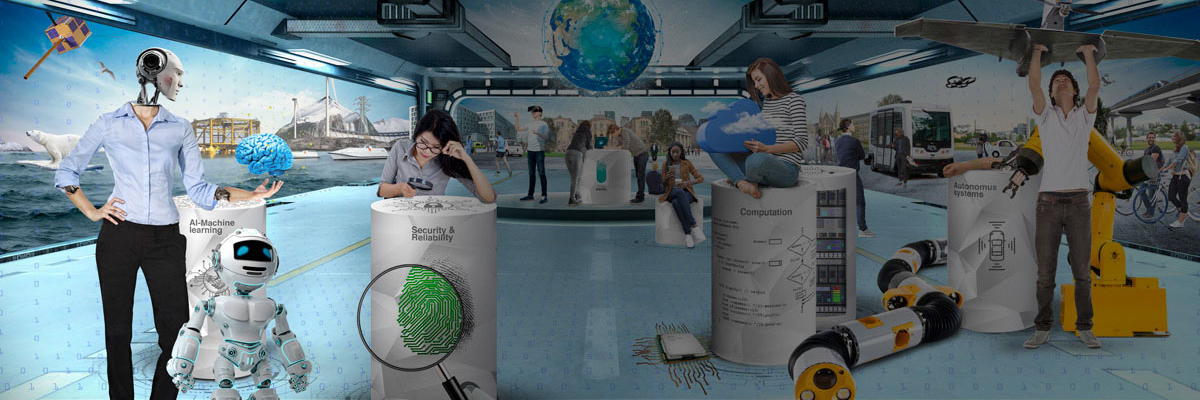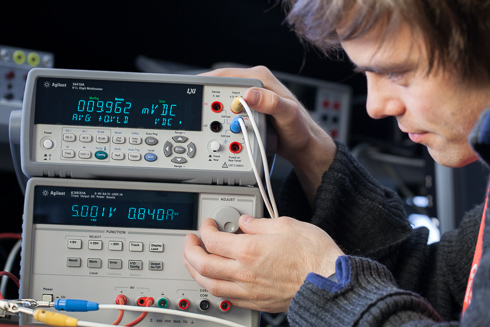Research at the Department of Computer Science
Research
at the Department of Computer Science (IDI)

Our research addresses challenges in artificial intelligence (AI), big data, computer architecture, computer graphics, computer security, databases, human computer interaction (HCI), information systems, operating systems, software engineering, and search–to mention but a few.
Research groups

Algorithms, HPC and Systems
Algorithms, HPC and Systems contributes to cutting edge research related to algorithms, HPC and computing systems, as well as providing high-quality teaching in relevant areas.

Applied Artifical Intelligence
Applied Artificial Intelligence Autonomous systems that are able to operate independently of human control in unknown and unstructured environments.

Artificial Intelligence Foundations
Artificial Intelligence Foundations uses a broad range of fundamental AI concepts and tools – from classic approaches involving logic and explicit knowledge representation to data-driven Machine Learning (ML) methods.

Colourlab
Colourlab was founded to serve the rising needs for colour management solutions in the graphic arts industry.

Computer Architecture Lab
Computer Architecture Lab focuses on energy efficiency as the key design challenge for future computing systems, ranging from wireless embedded client devices to high-performance computing centers.

Computing Education
Computing Education focuses on the teaching practice in computing education. Creating innovative IT education, helping students gain necessary competence to work with future challenges like digitalization and sustainability.

Information Systems
Information Systems focuses on the transformative potential of information and communication technologies (ICTs) and how they may benefit users, organisations, and society in various domains, including both the public and private sectors.

Intelligent Systems and Analytics
Intelligent Systems and Analytics does interdisciplinary in computer science aiming at creating societal impact by combining competence in system development with analytical expertise, while fostering inclusiveness in research and education.

Software Engineering
Software Engineering conducts research in a wide range of topics related to planning, development and operation of complex software products and topics which are crucial to the software industry and society as a whole.

Visual Computing
Visual Computing deals with computer vision (image analysis), computer graphics (image synthesis), and extended reality. Visual Computing is a key driver for artificial intelligence. The group focus on autonomous driving, medical image analysis, digital twins, 3D object retrieval, biometrics and cultural heritage.
Projects from the Research Council of Norway (NFR), the Norwegian Agency for Development Cooperation (Norad), and strategical research areas at NTNU.
PhD studies

Supervised doctorates are the highest degrees awarded by the University for research. The research is carried out under the immediate supervision of staff members. The education and training provided produce graduates who have the capacity to conduct independent research that is both original and of high international quality.
PhD programme in computer science
Vacant positions at our department

